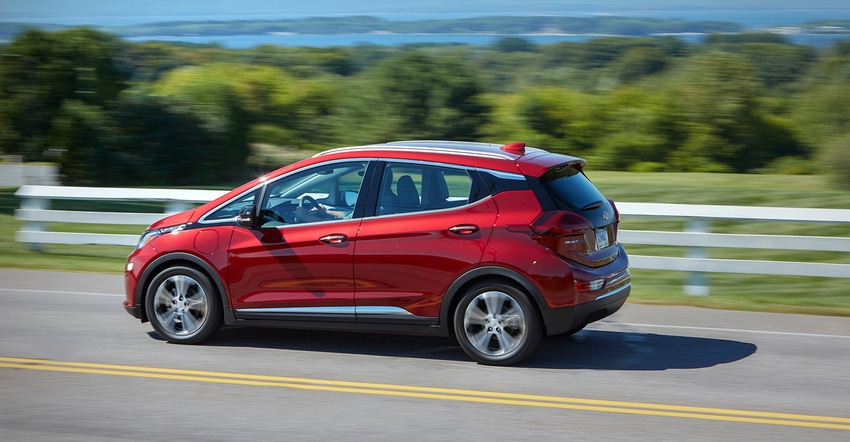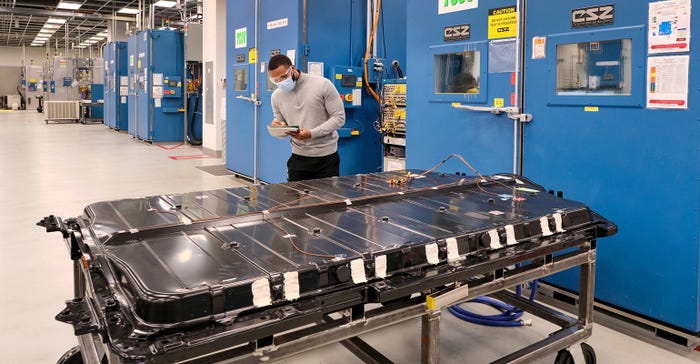GM’S CEO Announces Next-Generation Chevy Bolt
During GM's quarterly earning conference call, GM CEO Mary Barra announced that the Chevy Bolt will be back, and Ultium batteries would power it.

Less than three months ago, Battery Technology reported that General Motors (GM) was ending production of the Chevy Bolt. Still, GM changed plans unexpectedly and recently announced during the company’s Q2 earnings conference call that a next-generation Chevrolet Bolt is coming. GM Chair and CEO Mary Barra has said that GM will execute an accelerated timeline for the launch of the next-generation Chevrolet Bolt, a move aimed at maintaining momentum in the electric vehicle market.
Barra stated that leveraging various Ultium and Ultifi—GM's vehicle software platform that enables over-the-air software updates, seamless cloud-connectivity, and vehicle-to-everything communication—advancements will allow the company to bring the new Bolt to market faster and more efficiently, strengthening GM's position in the rapidly evolving EV landscape.
“We will keep the momentum going by delivering a new Bolt…and we will execute it more quickly compared to an all-new program with significantly lower engineering expense and capital investment by updating the vehicle with Ultium and Ultifi technologies and by applying our ‘winning with simplicity’ discipline,” said Barra. “Our customers love today’s Bolt. It has been delivering record sales and some of the highest customer satisfaction and loyalty scores in the industry,” continued Barra. “It’s also an important source of conquest sales for the company and for Chevrolet.”
But what is an Ultium battery?
Ultium is GM’s brand of next-generation EV batteries, drive units, and platforms. Ultium is a lithium-ion battery with a nickel cobalt manganese aluminum (NCMA) chemistry, designed to reduce the cobalt content by more than 70 percent. GM states that Ultium battery cells are expected to offer an estimated driving range of 300+ miles on a full charge. These cells can be arranged in different flexible modules and battery pack combinations to provide the energy needed for various vehicles, from compact cars to large SUVs and trucks.

An Ultium battery module—a grouping of battery cells within a structure—does not use a traditional cylindrical battery cell. Instead, it uses high-energy pouch cells in modular design.
GM is facing slow battery production
The announcement comes as GM faces challenges with slow battery production mainly due to suppliers’ inability to deliver automated manufacturing machinery, leading to a delayed rollout of their electric vehicle lineup. “We are working on multiple fronts to put this behind us,” said Barra (as quoted by The New York Times).
According to The New York Times, in the first half of this year, GM produced just 50,000 electric vehicles, and a significant 80 percent of that production comprised Chevrolet Bolts equipped with older battery packs sourced from a supplier. Adopting the company's newer, more advanced modular Ultium battery packs has been slower than anticipated, the Times report noted: “In the United States, GM sold fewer than 2,800 vehicles that used its new, modular Ultium battery packs, which are made at an Ohio factory that the company owns with LG Energy Solution.”
Despite these production challenges, the new Bolt will be one of the vehicles benefiting from the innovative Ultium technology, which is expected to enhance performance and range. The new Bolt is scheduled to join Chevrolet’s growing lineup of all-electric vehicles, three of which are launching this year — Silverado EV, Blazer EV, and Equinox EV. Industry experts and electric vehicle enthusiasts will closely watch the new model's launch date and specific details.
About the Author(s)
You May Also Like





